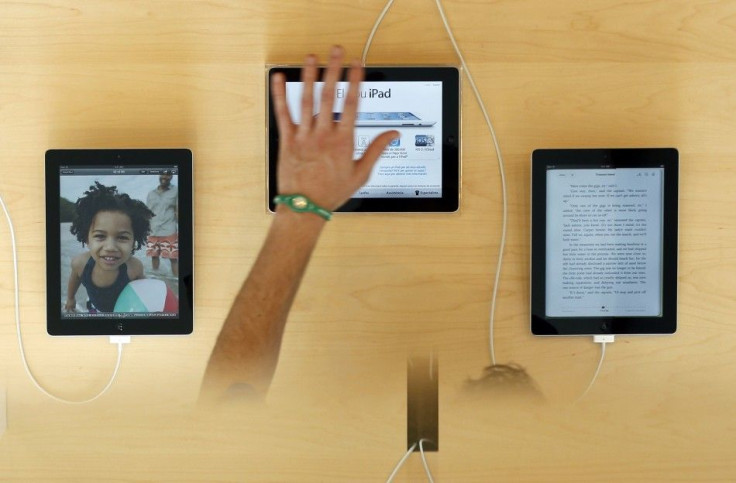Samsung Supplier Bought By Apple As Court Date Looms

If Apple Inc. (Nasdaq: AAPL) and Samsung Electronics Co. Ltd. (KRX: 005930) were people instead of corporations, they would get along about as well as the Hatfields and McCoys. That is to say they'd probably take up arms against each other.
And as they prepare to duke it out in court on Monday in one of the biggest-ever patent disputes, Cupertino, Calif.-based Apple just snatched up one of Samsung's suppliers, Melbourne, Fla.-based AuthenTec Inc. (Nasdaq: AUTH) for $356 million.
The acquisition was announced Thursday after markets closed. AuthenTec saw its share price rocket from $5.07 to $8.35 Friday, a nearly 65 percent gain. Apple's share price rose $8 to $582.9.
AuthenTec makes fingerprint-scanning technology that's used in gadgets to prevent unauthorized access. In Japan the chips are popular in mobile devices because the country has become an early adopter of mobile-based commercial transactions that have yet to take flight in other markets.
Both the buyers and sellers in the deal are keeping mum about how the acquisition will affect Samsung. Just last week AuthenTec announced that the Korean electronics giant was buying the company's security software for the Android operating system, which allows faster secure connections from mobile devices and tablets.
Whatever relationship Apple will have with its primary competitor in the mobile phone market is unknown, but it's unlikely it will continue to sell to Samsung its patented technology if it doesn't need to.
Dougherty & Co. analyst Charlie Anderson told Reuters the company will likely not interfere with current agreements AuthenTec has with Apple's rival, lest the move stirs up ire from anti-trust regulators. AuthenTec also supplies Dell Inc. (Nasdaq: DELL) and Hewlett-Packard Company (NYSE: HPQ), so a move against any current arrangements could elicit accusations that the company is cornering the market.
On Monday, the makers of the top two smartphones, Apple and Samsung, will begin arguments in a federal court in San Jose, Calif., over whether Samsung's smartphone and tablet platforms are rip-offs of Apple's iPhone and iPad interface. It's claiming $2.53 billion in damages. Samsung has countersued, saying Apple is trying to shut down competition and that it used four of Samsung's patents when it entered the mobile market in 2007.
The stakes in the trial are high. If a judge rules in Apple's favor, Samsung will not only have to fork over as much as three times more than what Apple is demanding; it won't be able to sell its Galaxy phones or tablets in the world's richest market, the United States.
The spat has gone to courts in at least nine other countries, including Japan, Germany and even Samsung's home base, South Korea. The lawsuit has become a complicated worldwide web of litigation that makes a simple shootout between two rival clans simple by comparison.
© Copyright IBTimes 2025. All rights reserved.






















